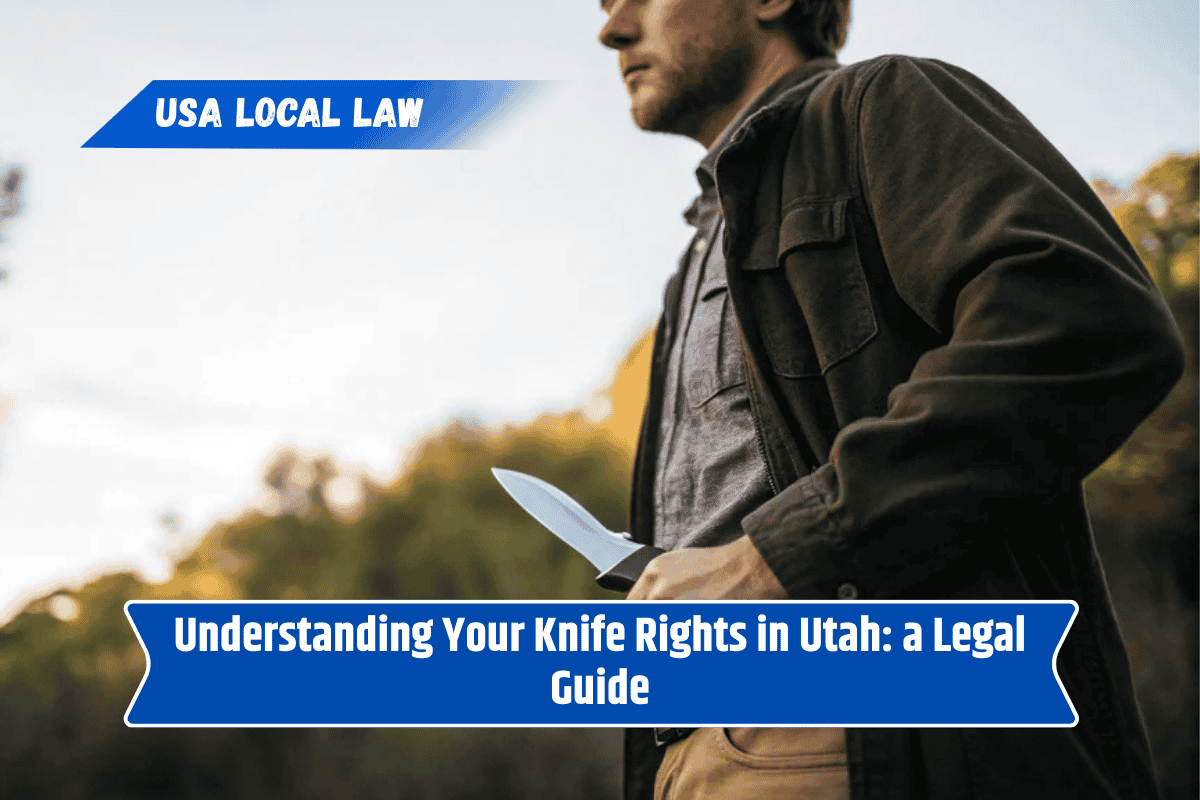If you carry a knife for work, outdoor use, or self-defense, knowing your rights under Utah law is important. Knife laws can be confusing and vary from state to state, but Utah is considered one of the more knife-friendly states in the U.S.
Whether you’re a local resident or just passing through, this guide will help you understand what kinds of knives are legal to carry, where you can carry them, and what restrictions might apply.
Are Knives Legal in Utah?
Yes, knives are legal to own and carry in Utah for most people. The state passed legislation in 2011 that made Utah a preemption state, meaning local cities and counties cannot make their own knife laws that are stricter than state law.
This makes Utah’s knife laws more uniform and easier to understand.
Types of Knives Legal to Own in Utah
Utah law does not ban any specific type of knife. This means you can legally own:
Folding knives (pocket knives)
Fixed-blade knives
Bowie knives
Switchblades (automatic knives)
Butterfly knives (balisongs)
Throwing knives or stars
Knives with knuckle handles
Daggers and stilettos
There is no blade length restriction under state law, so even large knives are legal to possess and carry, unless you’re in a restricted area.
Can You Carry a Knife in Public?
Yes. In Utah, you can carry any legal knife, openly or concealed, unless you intend to use it unlawfully.
Utah law only restricts knives in certain situations:
If you carry a knife with the intent to harm someone unlawfully, it becomes a criminal issue.
Certain areas like schools, government buildings, or courthouses may have specific rules against carrying weapons, including knives.
Knife Laws for Minors
Minors (under 18) can carry knives, but there are limits:
They should not carry dangerous weapons (as defined by intent) without parental consent.
Schools are weapon-free zones — minors can face disciplinary action or legal trouble for bringing knives to school, even by accident.
Places Where Knives Are Restricted
While Utah is generally relaxed about knife laws, knives may be banned or restricted in specific locations:
Schools and school property
Courthouses
Federal buildings
Airports (TSA regulations still apply)
Private businesses, stores, or event venues can also set their own rules. If a business asks you not to bring a knife inside, you are required to follow that request or leave.
Self-Defense and Knife Use in Utah
Utah allows the use of knives in self-defense, under the same rules that apply to other weapons. You must:
Be in immediate danger of serious harm or death
Use only reasonable force to stop the threat
Not be the aggressor in the situation
Using a knife in self-defense is legal only if necessary. If you overreact or use deadly force when not justified, you could face criminal charges.
Understanding Intent: A Key Legal Factor
Utah knife laws focus more on your intent rather than the knife itself. You can carry almost any knife legally—but if you’re found with a knife while committing a crime or with the intention to harm someone, it becomes a dangerous weapon, and you can be charged accordingly.
Tips for Staying Within the Law
To avoid legal trouble, keep these tips in mind:
Don’t carry knives into schools or federal buildings.
Avoid threatening or aggressive behavior while carrying a knife.
Be mindful of private property rules.
If you’re under 18, talk to your parents or guardian before carrying a knife in public.
Utah has some of the most relaxed knife laws in the country. There are no blade length limits, no banned knife types, and both open and concealed carry are allowed.
However, the law is strict about how and where you use or carry your knife. As long as you avoid restricted areas and carry without harmful intent, you’ll be well within your rights.
